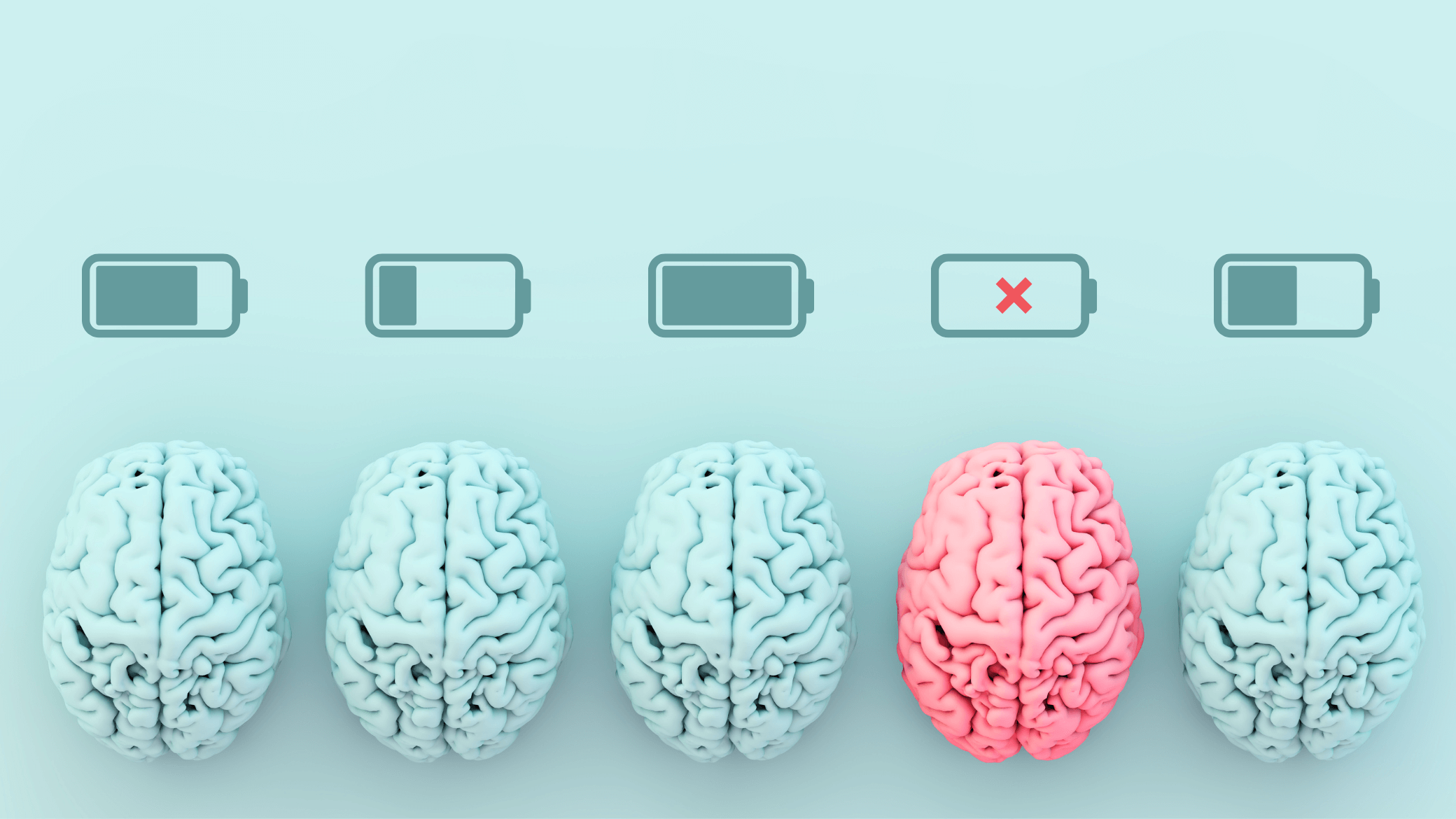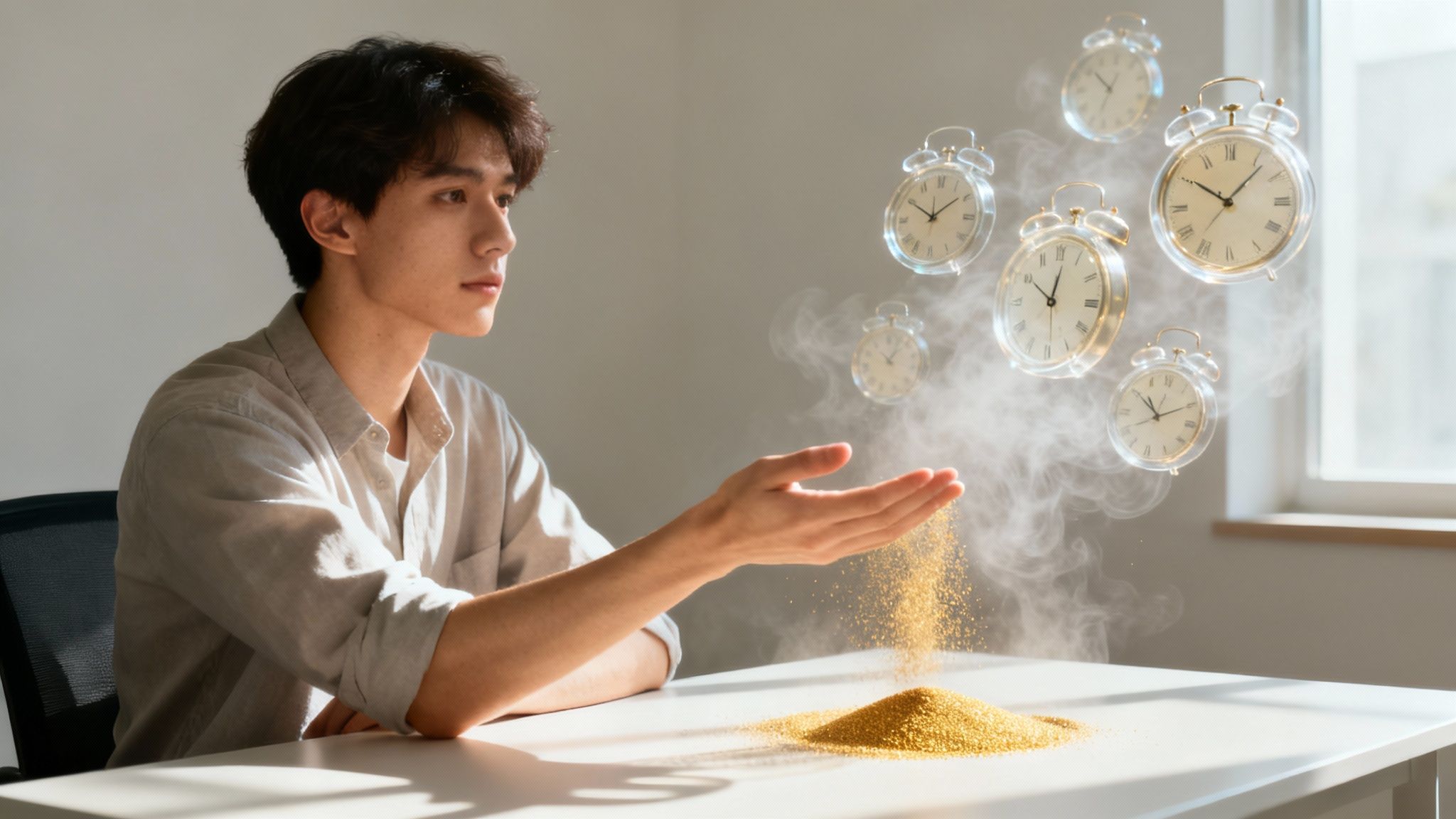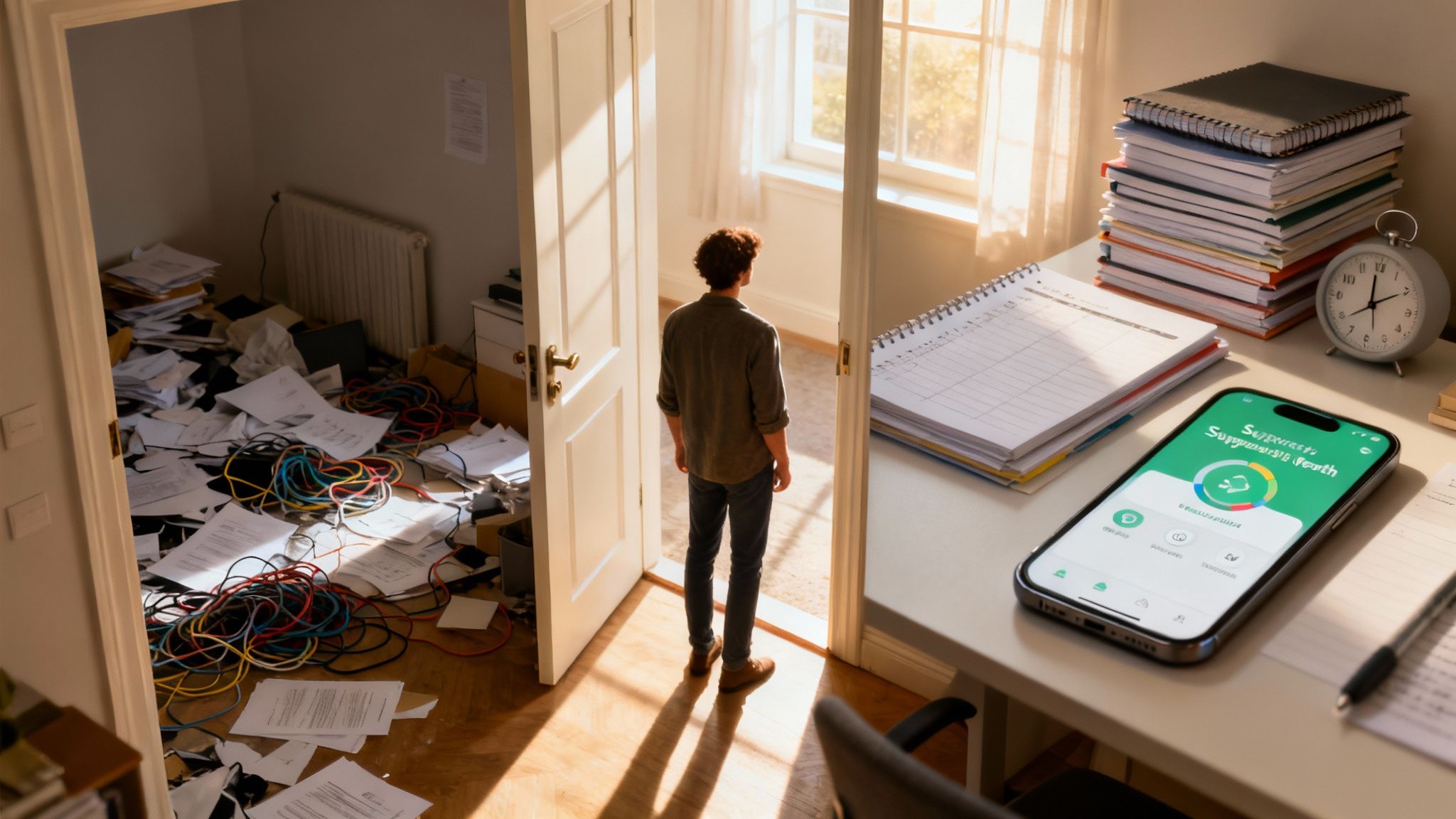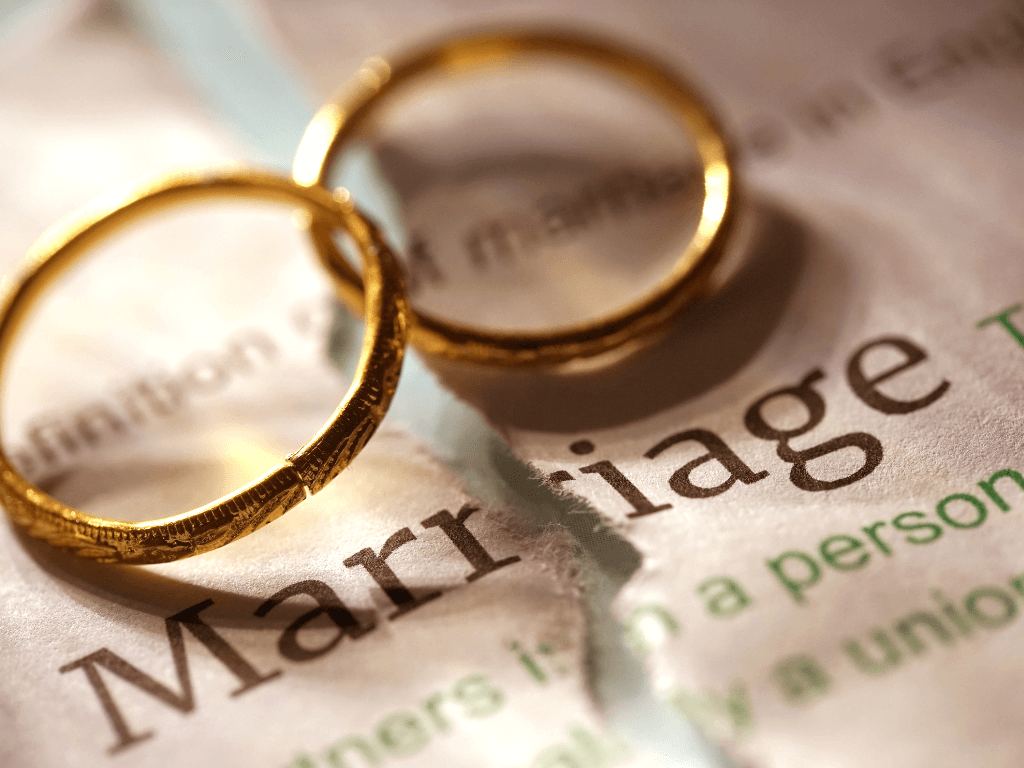As fun as it is to see our friends and family, it can also be incredibly tiring. After all, social interactions take a lot of energy! Unfortunately, this means that what started as a fun get-together can quickly become thoroughly overwhelming.
If you feel drained and stressed after spending time with other people, you might be experiencing what's known as social exhaustion.
Too long; didn't read
- Social exhaustion is a type of burnout that leaves you feeling drained after socializing.
- People with ADHD are more prone to experiencing social burnout.
- Certain ADHD symptoms—overstimulation, rejection sensitivity, emotional dysregulation—can contribute to social exhaustion.
What does social exhaustion feel like?
Social exhaustion—also known as social fatigue, social burnout, or introvert hangover—is exactly what it sounds like: feeling utterly exhausted after spending time with people.
While sometimes called "introvert hangover," it's not exclusive to introverts. Even if you're naturally extroverted, you can still socialize to the point of feeling emotionally and mentally drained.
What causes social burnout in humans?
Making small talk, engaging with others, active listening, and paying attention are just a few things that happen during social interactions. And it all requires extensive cognitive processing, which consumes energy.
In other words, you're literally using your valuable energy reserves to talk about the weather with that guy in the elevator.
🔬 Research statistics: Most people start to feel tired after 2-3 hours of socialization, regardless of how introverted or extroverted they are.1
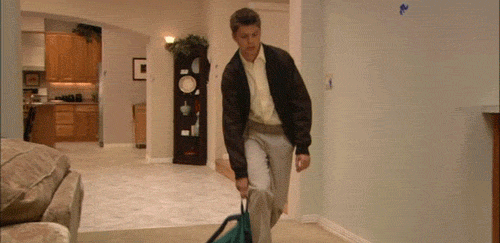
Recognizing social fatigue: what are the symptoms?
Think of your social momentum like a battery. Every party, social event, or conversation you're in uses up some of that battery. Eventually, it's depleted and needs to recharge.
Social burnout can lead to impaired mood and difficulty handling everyday situations.2
The most common symptoms of social exhaustion include:
- Physically tired
- Irritable or moody
- Anxious or depressed
- Detached, withdrawn, or apathetic
- Sluggish
- Dizzy
- Unable to focus
Other social fatigue symptoms that may affect you:
- Headaches or migraines
- Difficulty sleeping
- Brain fog
- Muscle aches
- Stomach upset
ADHD and social exhaustion: what's the link?
Social exhaustion can happen to anyone, introverts and extroverts alike. People with ADHD, however, may be especially susceptible.

ADHD: a symptomology recap
ADHD is characterized by inattention, impulsivity, and hyperactivity. ADHDers are often thought of as talkative and full of energy—the reality, though, is much, much different.
Many people with ADHD struggle with anxiety, fatigue, and burnout. Adults with ADHD are more likely to feel stressed and overwhelmed than those without and frequently have significantly higher fatigue levels.3,4
How does ADHD affect socializing?
As children, we learn social skills by watching other people interact; over time, we learn through feedback from peers. This process of observational learning requires attention and memory, and children with ADHD have more trouble with social development than their peers.5
While many of us have learned how to interact better in adulthood, those early social difficulties have lasting effects and can make socializing more laborious. For example, we may work harder to understand subtle cues or actively listen during conversations.
On top of that, many people with ADHD struggle with emotional regulation and sensory stimulation, which can contribute to social exhaustion.
Overstimulation
Overstimulation refers to sensory information overload. Basically, it's when there's too much going on around you, and you end up feeling overwhelmed.
Even if you don't have sensory issues, you can become overstimulated by loud or sudden noises or overly bright lights. That's because everyone has a stimulation threshold; for those with ADHD, that threshold tends to be lower.
ADHD is less about inattention and more about an inability to control attention. It's harder for ADHD brains to filter out irrelevant information. Concentrating on what's in front of you is more difficult when your mind is also busy paying attention to everything else in the background.
Emotional dysregulation
Emotional dysregulation, the inability to control your emotions appropriately, is often seen in people with ADHD.6
While we all feel angry, frustrated, or upset from time to time, emotional regulation deficits are more intense and chronic.
Those with emotional dysregulation may experience:
- Difficulty understanding emotions
- Extreme or overblown reactions
- Emotional fixation (inability to focus on anything else while upset)
- Difficulty calming down
- Low tolerance for stress or frustration
Rejection sensitive dysphoria is a similar emotional condition when someone has an extreme emotional reaction to rejection or criticism, real or perceived. People with ADHD are more sensitive and overly reactive to peer rejection and less sensitive to positive social feedback.7
4 ways to manage your social exhaustion
1. Pay attention to what your mind and body need.
Learn to recognize the signs of burnout in yourself.
For example, you may become moody or irritable for seemingly no reason. Take note of when that happens. (⚠️ Spoiler alert: it's not for no reason!)
So, the next time you find yourself snapping at an acquaintance for asking how you've been, you'll know it's time to take a break from the small talk.
2. Set boundaries. No, seriously.
Stop overcommitting yourself by saying yes to every event!!
Even if you feel obligated to go, it's still OK to skip it if you're feeling overwhelmed. While it might be helpful to tell your friends and family why you're taking a rain check, stick to something simple if the thought of doing so makes you anxious.
"I'm sorry, I'm actually not available for that." - You with boundaries
There's nothing wrong with going to an event and only staying for an hour! But if you have to stay, take mini breaks!
3. Practice self-care.
"Self-care" doesn't have to mean that you have to spend your day at the spa. It can be much simpler than that.
Taking care of yourself physically—eating healthy, getting enough sleep, and drinking more water—is one of the best ways to manage burnout.2 Self-care is also emotional and relatively subjective. Whether it's journaling or going for a walk, find what helps you relax. Then, schedule some time every day to practice your self-care ritual.
4. Focus on listening.
It's hard not to think of what you'll say next in conversations! (It's one of the many reasons why people with ADHD tend to interrupt others unintentionally.)
But if we're trying to listen, pay attention, and plan what we're going to say next? Well, it's exhausting! It's no wonder we're socially exhausted after being around others.
Instead, focus only on listening.
-
Sources
1 Heliyon | Sociable behavior is related to later fatigue: moment-to-moment patterns of behavior and tiredness
2 International Wound Journal | Societal pandemic burnout: A COVID legacy
3 The British Journal of Clinical Psychology | Fatigue in an adult attention deficit hyperactivity disorder population: A trans-diagnostic approach
4 BMC Psychiatry | Stress and work-related mental illness among working adults with ADHD: a qualitative study
5 Psychiatry Research | Association of comorbid anxiety with social functioning in school-age children with and without attention-deficit/hyperactivity disorder (ADHD)
6 Clinical Psychology Review | Attention-deficit hyperactivity disorder and children's emotion dysregulation: A meta-analysis
7 Journal of Abnormal Child Psychology | Sensitivity to Peer Feedback in Young Adolescents with Symptoms of ADHD: Examination of Neurophysiological and Self-Report Measures


